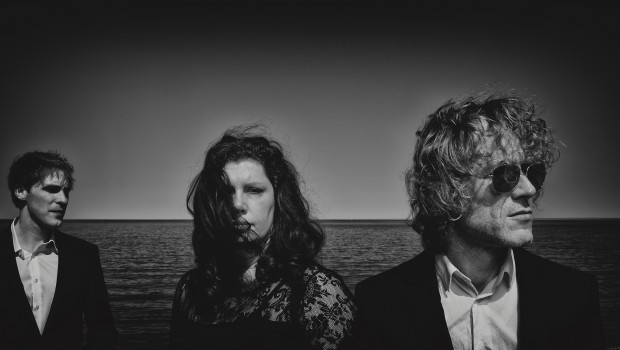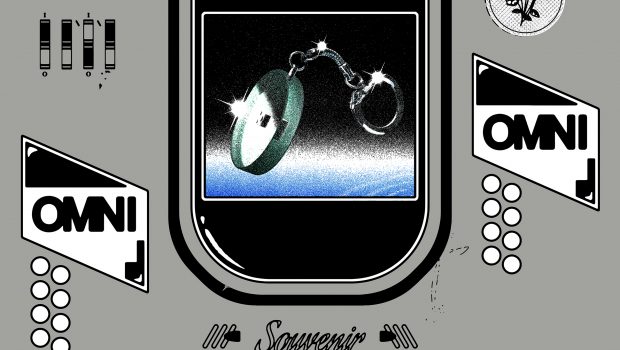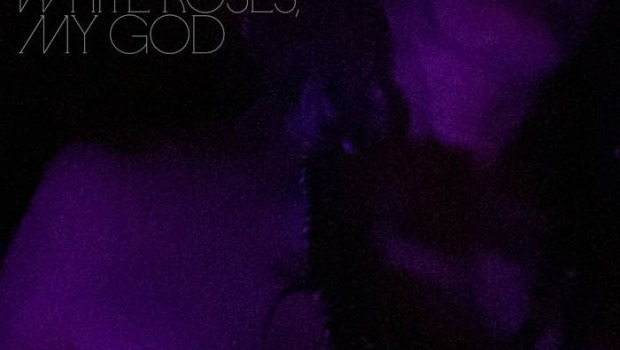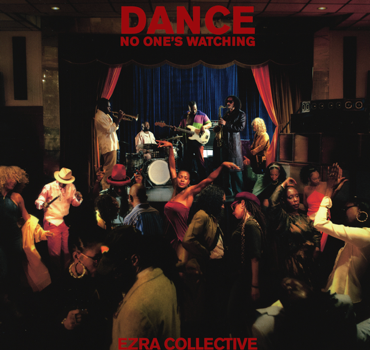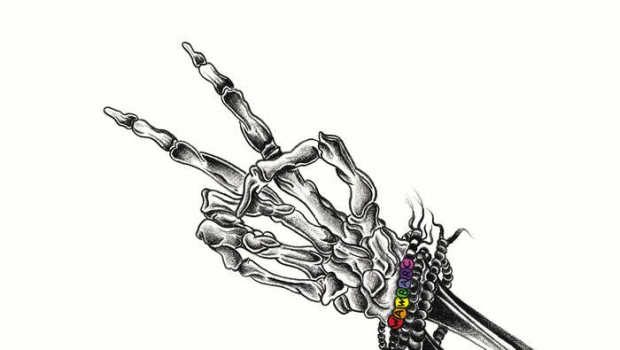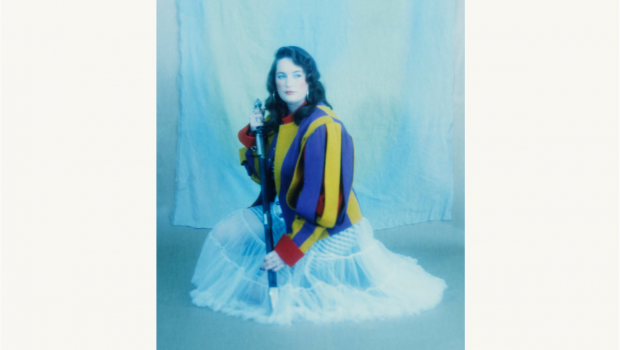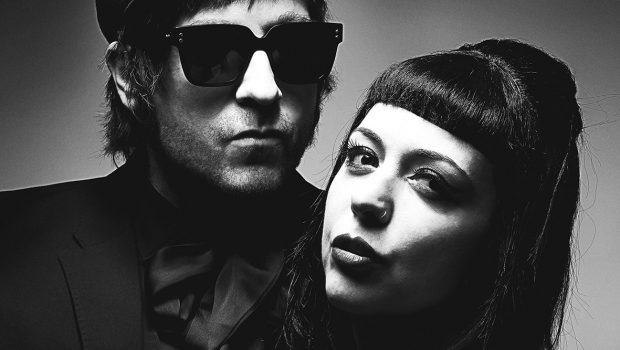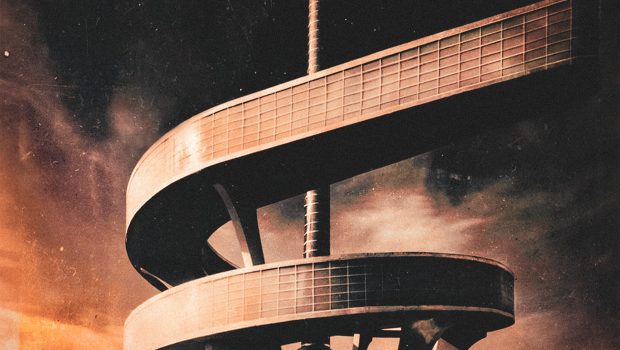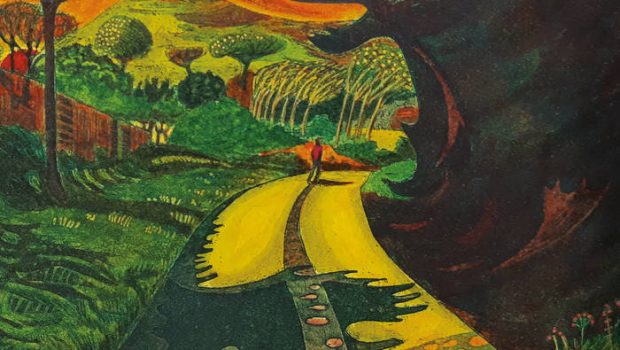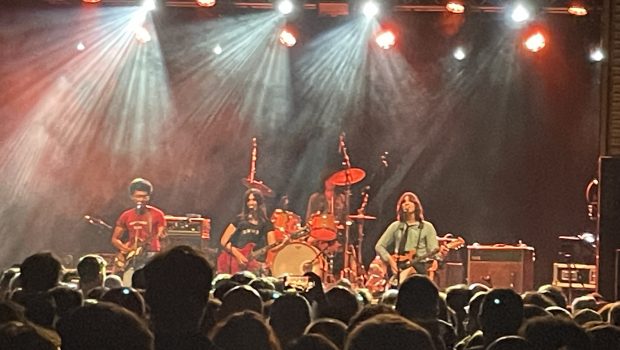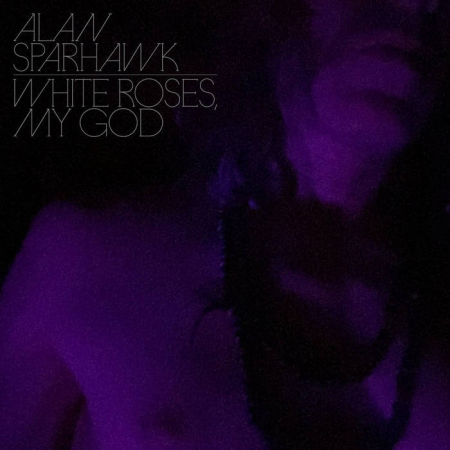 I haven’t anticipated the release of an album as strongly as I have in the case of Alan Sparhawk’s debut solo record, ‘White Roses, My God’. Like countless other fans of the work he produced while a member of the esteemed duo Low (alongside Mimi Parker), I was taken aback upon listening to ‘Can U Hear,’ the first of the record’s two promotional singles. One needed only to have heard the opening 20 seconds to realise that Sparhawk would be taking a whole new musical direction on this project: sure, Low’s latter three albums saw them create increasingly experimental soundscapes with the assistance of producer BJ Burton, but Can U Hear’s captivating cymbals and claps (courtesy of a drum machine) and the searing synth bassline that shocks the ears soon after set the foundation for a techno-inspired sound never before explored by Sparhawk in his decade-spanning musical career. That’s neglecting to mention the song’s other features, such as the dissonant, other-wordly female harmonies that puncture the synthesised instrumental and the autotune vocal effect Sparhawk adopts here and across the rest of the album.
I haven’t anticipated the release of an album as strongly as I have in the case of Alan Sparhawk’s debut solo record, ‘White Roses, My God’. Like countless other fans of the work he produced while a member of the esteemed duo Low (alongside Mimi Parker), I was taken aback upon listening to ‘Can U Hear,’ the first of the record’s two promotional singles. One needed only to have heard the opening 20 seconds to realise that Sparhawk would be taking a whole new musical direction on this project: sure, Low’s latter three albums saw them create increasingly experimental soundscapes with the assistance of producer BJ Burton, but Can U Hear’s captivating cymbals and claps (courtesy of a drum machine) and the searing synth bassline that shocks the ears soon after set the foundation for a techno-inspired sound never before explored by Sparhawk in his decade-spanning musical career. That’s neglecting to mention the song’s other features, such as the dissonant, other-wordly female harmonies that puncture the synthesised instrumental and the autotune vocal effect Sparhawk adopts here and across the rest of the album.
ALBUM REVIEW – ALAN SPARHAWK: WHITE ROSES, MY GOD
This single, and the left-field direction it signalled upon release, will have no doubt been jarring to a lot of fans of Low, particularly those of their earlier material, but Alan and fellow Duluth musician Nat Harvie (alongside whom Sparhawk produced this record) will have long ago accepted that. Experimentation and deviation from expectations always sparks division – White Roses, My God will inevitably alienate some people – but for those who may be allured by gritty club beats and the off-kilter in general, I would implore you to give this album’s 11 tracks a listen.
Sparhawk’s decision to kick off the proceedings with the aforementioned second single, ‘Get Still,’ was, in my opinion, a damn good one. It begins with a hypnotic synth arpeggio that greets the listener atop a choppy drum machine beat, both of which get louder when an abrasive synth bass sound is thrown into the mix; these components together evoking the feeling of being in a crowded club, as flashing lights capture people losing themselves in the music in a series of tableaux. Again, Sparhawk does not settle for your average techno track: halfway into the song, there is a burst of voices – Alan’s among them – that sounds angelic in the midst of Get Still’s brooding, booming instrumental. Moreover, as it nears its end, a low, strangely ominous percussive sound thrums in the left ear, as Sparhawk repeats the vague line, ‘somewhere out there’; a phrase that, to my mind, reinforces the feeling of being lost, either in the sense of losing oneself in music, or perhaps in a more metaphorical one.
Though it is certainly a techno-adjacent sound that Sparhawk has opted for on White Roses, My God, then, he has incorporated into it not just the odd musical idiosyncrasy, but his own thoughts and feelings, with many tracks revolving around this idea of feeling adrift from the world and small in the grand scheme of things.
A prime example of this would be ‘Feel Something,’ a groovy arpeggiated number and the 8th song on the record. In an interview with The Guardian, he cited Cher’s 90’s smash ‘Believe’ as an influence particularly on this song, and the similarities are baked in: just as Cher poses the question, ‘do you believe in life after love’ in Believe, Sparhawk too gravitates toward the profound when he sings ‘can you feel something here’ which is soon followed by the line, ‘I wanna feel something here’. With regard to the death of his wife and former bandmate Parker in 2021, his desire to ‘feel something’ could have arisen amidst his grief and, especially, in the numbness it can provoke in those it affects. Here, Sparhawk taps into something true of all music but very much so of dance music as a broad genre: it can make us feel a greater sense of connectedness to the world around us, to the people in our lives – living or not – and to ourselves. Thus, a tone of hope is palpable when, backed by only a low synth-bass drone, the musician sings, ‘I think I feel something’ and then, ‘I can feel something.’
So, too, in tracks 9 and 11 – ‘Station’ and ‘Project 4 Ever’ respectively – is this hopefulness, in spite of immense grief, conveyed. The former, a dynamic composition whose scattergun tom hits and smooth synths crescendo dramatically several times during its runtime, sees Sparhawk celebrate the simple things in our lives, small as they may be, like in the line, ‘I please myself with the little things I surround myself with.’ From the weekly Instagram Lives that the musician hosts – one of which saw him perform this very song – such is shown to be true: he records himself playing music (sometimes with his kids) before going out to his garden where he has long grown vegetables and flowers, often with the family dog Blue in tow.
I would have to say that the latter song, Project 4 Ever, refers to his lifelong relationship with music and the way in which it has helped him through a very tough part of his life. Sparhawk sings on the album closer, ‘I waited forever,’ his reference to this waiting in the past tense suggesting that he doesn’t need to any more – he, thanks to music amongst other things, has felt something, and that is something to be celebrated. The song progresses, with Alan harmonising with himself as he repeats the refrain ‘forever’ backed by claps and a warping synth. My favourite moment across the whole record comes when, as all other instrumentation falls to the wayside, a vast wave of a synth chord washes over the listener, something as simple as its bass note changing slightly creating an inexplicably emotional sound. To me, all of the various emotions touched upon throughout White Roses, My God, are encompassed in this brief yet beautiful part of the song; realised in a bittersweet collection of notes.
Something that may have become increasingly apparent as you’ve read this piece is my sparing mention of what one might consider to be the elephant in the room, that being Alan’s use of autotune on every song on this album. That is because, personally, I’m ambivalent to the sound – perhaps as a result of my status as a member of Generation Z and, therefore, being quite used to it as a now fairly common feature in music. I will say that I think the vocal effects work quite well with the instrumentals they are paired with, as one can always match the harsh sound of the other.
All in all, though, I really enjoyed the experience that Sparhawk and Harvie have cultivated in White Roses, My God. Every song is simultaneously playful and heartfelt and it is a pleasure to hear Alan continuing to experiment as he has done for decades, before as a member of Low and now as a solo artist. Myriad unique sounds are explored throughout the album – from the charming synth bassline that begins another of my favourite tracks, ‘Not The 1,’ to the industrial drum beats that rise and fall in ‘Somebody Else’s Room’ – guaranteeing the listener an unpredictable and exciting time, should they choose to give Alan’s debut album a go. Which, if you haven’t concluded as much already, you should!
Alan Sparhawk: White Roses, My God – Out 27th September 2024 (Sub Pop)
